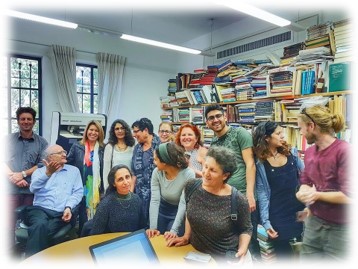Is New Age a religion? Is it a secular phenomenon? Is a "secular religion" possible? These questions were dealt with in a lecture at a conference than conviened academia spokespersons, thinkers, and various public personalities, to siddcuss the definitions and conceptualizations of hybrid and blurry phenomena.
The lecture disscussed the definitions of "religion", the emic and etic discourses, issues of labeling in the New Age field, the question of the essence of "secularism", the feasibility of "secular religion", the definition of "Spiritual But not Religious" (SBNR), and more. Furthermore, the lecture dealt with the blurring between definitions and conceptualizations within the alternative spiritualities, and analysed the motivation of creating this blurring.










